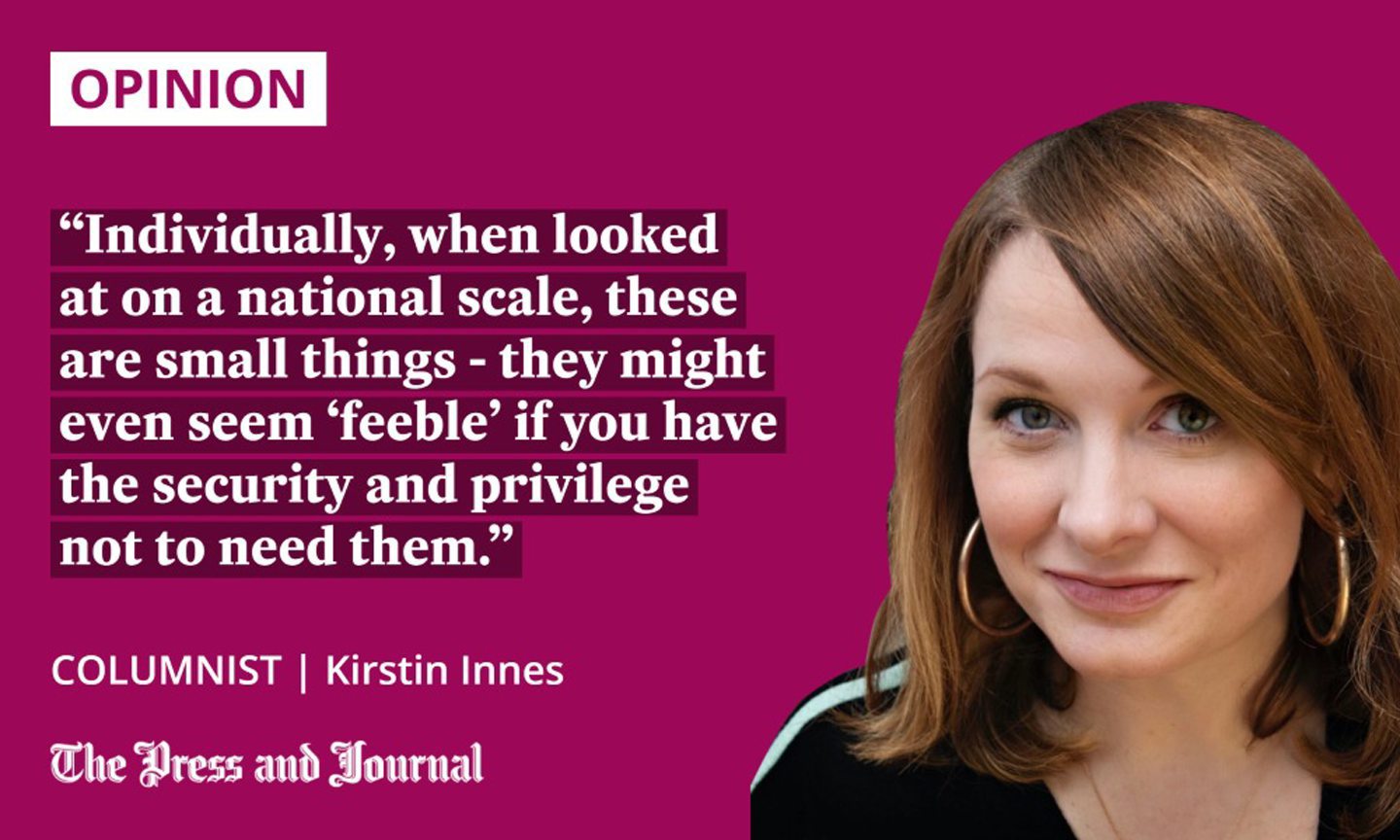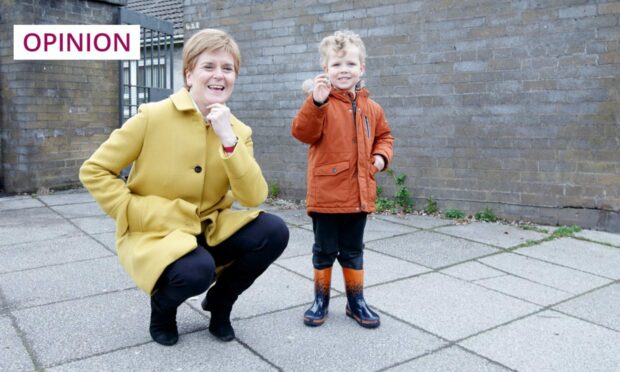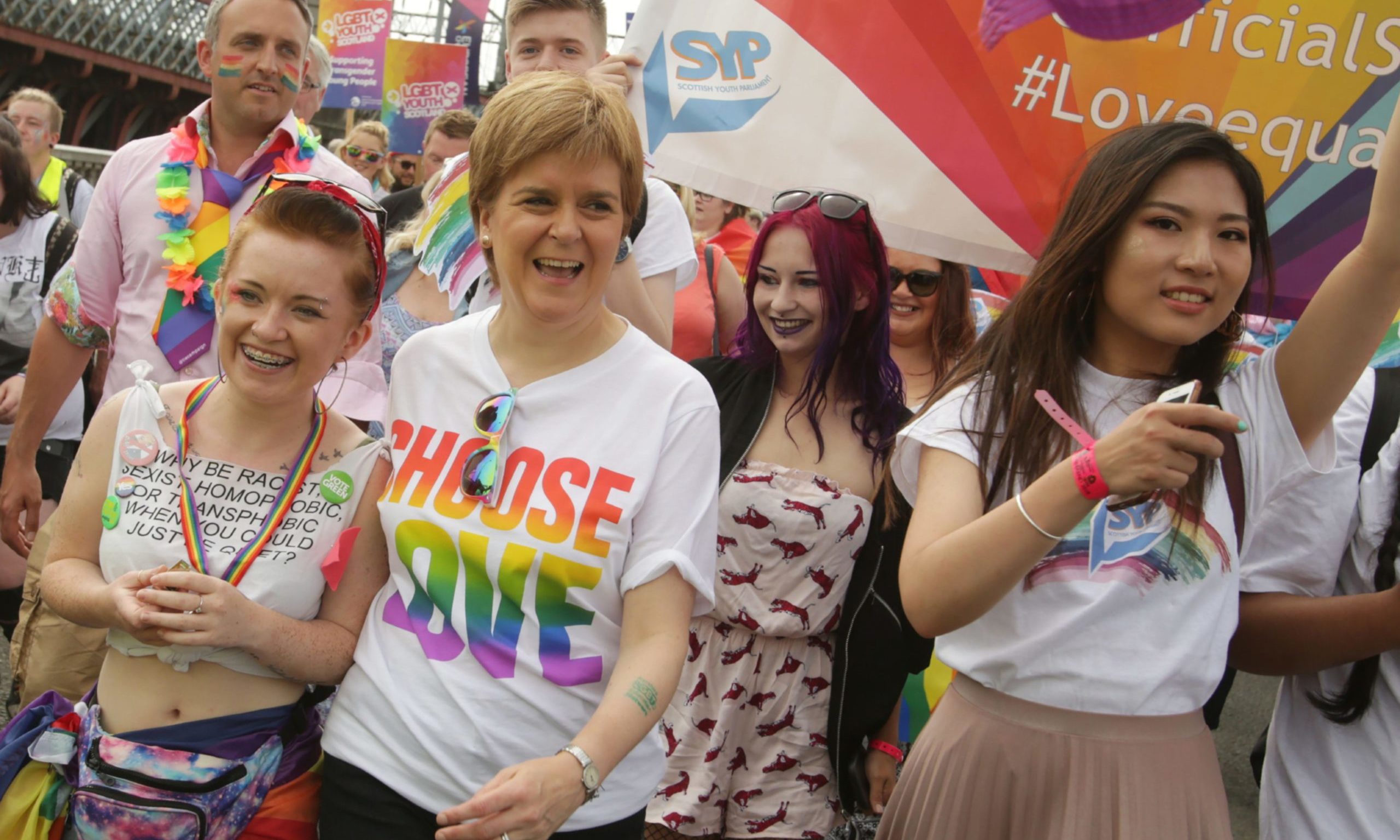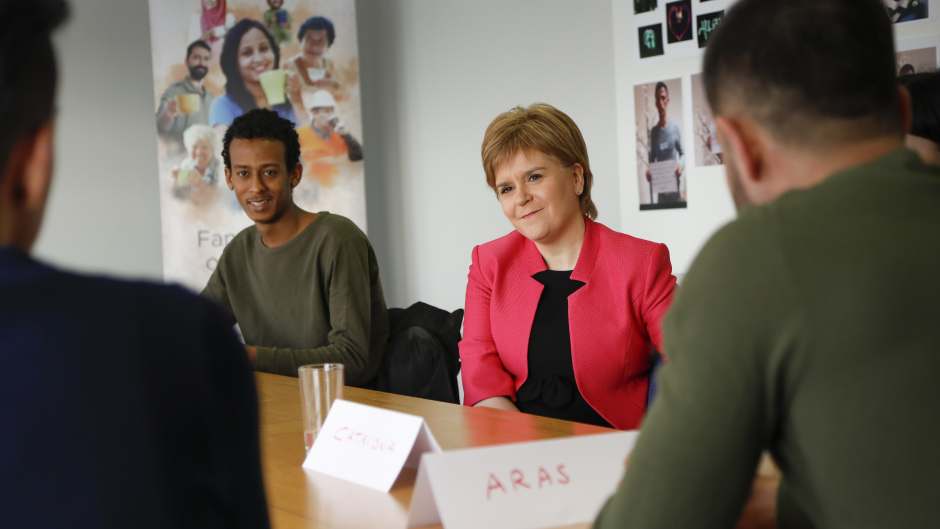The first minister will leave office having improved the lives of many marginalised people, and that’s a legacy to be proud of, writes Kirstin Innes.
Before I start, here are the obligatory caveats: no, Nicola Sturgeon wasn’t perfect, and neither was her leadership.
There are issues and questions which have been pored over and covered already by broadcast and print journalists in the week since her resignation, and rightly so – it’s journalism’s place to hold the powerful to account.
In that spirit, then – and partly in response to a lot of people who have contacted me about it, knowing that I write for The Press and Journal – I want to examine this paper’s description in an editorial leader column of Sturgeon’s legacy as “feeble”, reflecting on her resignation last week.
Nicola Sturgeon became a ‘polarising figure’
It’s true that the first minister has become a polarising figure; she was right when she said in her resignation speech that everyone seems to have already made up their minds about her.

So, maybe today, I’ll just write for the section of the population that’s feeling quietly bereft. For the working parents who, like me, are unable to afford much childcare, who have benefited enormously from the expansion of free early years education (the transition from 600 to 1,140 hours annually between my eldest and youngest children attending nursery has been transformative for my family).
‘Scotland is your home’
For the vulnerable and marginalised communities who have felt, under Sturgeon’s leadership, that the party of governance was on their side; for all the EU citizens living in Scotland who she reached out to immediately after Brexit with the words: “Scotland is your home”.
For those living in period poverty, who can now access free sanitary products in all schools and public toilets, no questions asked. For the five to 22-year-olds who now have free bus travel, and the associated environmental benefits that will bring longer term.
For the LGBT community, who felt they had a visible, vocal ally in a leader who would march in Pride parades with them, and rejoiced at attending the first legal gay marriage ceremonies in the country.
For the children now benefiting from free school meals, no questions asked.
For those communities which are now able to access the Scottish Land Fund to take their areas into community ownership.
For every care-experienced young person in Scotland, to whom she has reaffirmed her personal commitment to “making sure each and every one of you grows up feeling loved, safe and protected and that the right support continues to be available for you throughout your life”, after having met with and listened to their concerns.
For the measures she has already advocated for, in ensuring that care goes beyond the age of 16; the creation of the £33 million Care Experienced Children and Young People Fund to improve educational outcomes, including the £8,100 bursary, available to all care-experienced young people, to help them access higher education.
I’m not a member of any party – I’ve tried, but I find the tribalism of party politics reductive and counterproductive
For the asylum seekers and refugees who were able to settle in a country with a leader continually used language to reinforce that they were welcome here, in stark contrast to the dangerous rhetoric emerging from Westminster. (I could go on, but I’ve got a word count on this column and, if you’re predisposed to hate Sturgeon, you’ve already composed a scornful rejoinder to this list in your head anyway.)
Some may still come to appreciate what Nicola Sturgeon contributed to Scotland
Individually, when looked at on a national scale, these are small things – they might even seem “feeble” if you have the security and privilege not to need them. They don’t seem feeble to me; they seem like important foundation stones for the progressive, fair and equal society I want to live in, that Scotland is still within touching distance of becoming.
That adds up to a pretty impressive legacy, as far as I’m concerned. This is the SNP that has convinced more people to vote for it than any other party for almost a decade; this is the impact of a leader that had my friends in Australia, the US, France, Sweden and Pakistan contacting me in distress when the news of her resignation went international.
I’m not a member of any party – I’ve tried, but I find the tribalism of party politics reductive and counterproductive.
Like an awful lot of the electorate, many of whom may be affected by the policies I’ve outlined above, I only lent my vote to the SNP because Nicola Sturgeon, and the politicians she attracted to the party, like Kirsty Blackman, Hannah Bardell, Stephen Flynn, Mhairi Black, Philippa Whitford and Alison Thewliss, convinced me it was a party committed to an equal, fair, green future. The candidates now vying for the position of first minister would do well to keep in mind who and what their electorate voted for in the last election.
I do wonder how many of those who trumpeted that they were popping their champagne corks on February 15 will realise quietly over the next few years what we, as a country, had in Nicola Sturgeon.
Kirstin Innes is the author of the novels Scabby Queen and Fishnet, and co-author of non-fiction book Brickwork: A Biography of the Arches



Conversation